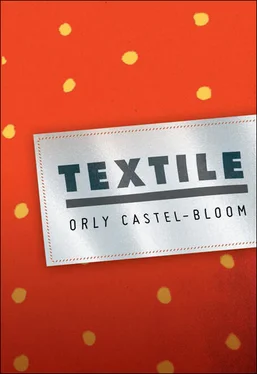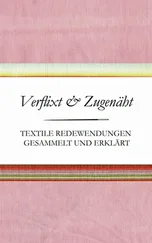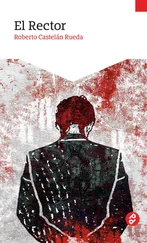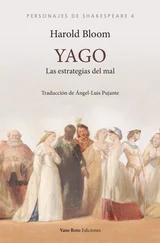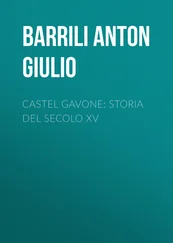Every day at dawn they did an hour of yoga on the lawn. Lightly and flexibly, they executed all kinds of positions (asanas) which released energetic blocks, including head stands without a wall. For a long time the two of them were capable of remaining upside down between heaven and earth, thereby enabling the blood to reach every capillary in their brains, steeping themselves in a pleasant relaxation. In the morning hours they would cook vegetarian food for the children who attended the Alliance Israelite school, and around noon they would go to open the doors of Splendor on the Lawn.
Their daughters Bahat and Shoham were obliged to become parasites insofar as they always went to visit their friends, but never invited their friends home because they were afraid that their mother or their father would suddenly stand on their heads, and they would become pariahs.
The yoga kept the family together, but isolated the two girls.
Financial security made it possible for the parents to develop the art of conversation between themselves, and to pass on to their students what they discovered or invented. And indeed they invented various expressions to convey to their students what they should do and feel.
For example, the Segals were the first in the country to say, “I’m speaking from a place of. .” They were the ones who invented the culture of “place” in the Hebrew language, and it was from there that they spoke to their students during the lesson and after it. All kinds of abstractions turned into places. There was a place of pain, a place of loneliness and frustration, a place of wanting to help, a place of compassion, and so on. They were the first to recognize that someone speaking from a place of anger was unable to talk to someone speaking from a place of acceptance. The widespread use of this term indirectly helped hundreds of psychologists throughout the country to communicate with their clients, and vice versa. Neither the state nor the Language Academy saw fit to reward the Segals for their efforts, but they were serene and it didn’t bother them.
Their dream, which came from a place of daydreams, was of course to go to India for as many years as possible, and there to learn how to live to the ripe old age of ninety-something.
ON THE DAY that Shoham received an exemption from guard and kitchen duty due to her terror of spiders — arachnophobia — Madeleine and Reudor set out for Mysore in India to learn and internalize another brand of yoga (Ashtanga).
Bahat was already planning her post-army trip.
At first things in India were almost perfect, but after a few weeks the Segals met a local yogi called Helen. Three months after they landed in India, Reudor ran away to Rishikesh with his new love Helen, who was also a guru.
Helen was more supple than Madeleine and more advanced than her in yoga, even though she was eight years older than Madeleine. She had been born in India, and had practiced from the age of three. Her parents had arrived there as colonialists in the framework of the expansion of the British Empire, and they had all returned to England in the framework of its contraction, after India received its independence. Helen had returned with them, but after a decade she wearied of the West and went back to India for good.
Her loneliness, her wisdom, her smile, and her agility captivated Reudor, who in any case was beginning to be bored to death with his wife.
After the separation from Reudor, Madeleine suffered a terrible crisis, which she overcame under the devoted care of nuns in Mysore. When she recovered her prana, she returned to Israel and to her daughters with the intention of cherishing them and remedying the injustices of the past. But Bahat had already set out on her coast-to-coast trip to America with her high school friend, Hagit, and Shoham had studied to be a midwife, and gone to work in the Yoseftal Hospital in Eilat.
This being the case, Madeleine Segal took up residence on her own in the ground floor apartment in green Ramat Aviv, and she made no attempt to renew the glory days of the yoga school, with the result that she soon fell into severe economic distress — something she had never experienced before.
And then the third blow fell. Bahat, who had set out for no more than a three month coast-to-coast trip, did not return to Israel, having fallen in love with a local boy from some university town in the far north of New York State. One daughter in Eilat, one daughter in northern New York, a husband in India — thus Madeleine summed up her achievements in life.
She spent hours on the phone to Bahat, imploring her to leave her local lover and return to her motherland and her mother, to what was left of her mother, she really needed her, and what did she have to do in upstate New York anyway. But Bahat was determined to be independent and even more original than her parents.
When Bahat’s traveling companion Hagit returned to Israel, she went to visit Madeleine and told her how Bahat’s desertion had come about. Madeleine recognized pure evil in her, but she sat quietly and listened to the wicked girl.
The two girls had been on their way to New York, to spend their last week there. Hagit just wanted to pass through Ithaca, because she was a bookworm addicted to useless knowledge. She had read in the thick guide book that they had bought at the beginning of their trip, which was already tattered with use, that little Ithaca was full of secondhand bookshops, and she wanted to pick up a few classics. Her English was excellent, much better than Bahat’s, even though she had never lived in an English speaking country.
For some reason Hagit was interested in the history of the United States, and at this point in the conversation she explained to Madeleine that in the past Ithaca had been called the city of sin, and even Sodom, because in its early days at the beginning of the nineteenth century, all kinds of lowlifes had lived there. Only after the Civil War between the North and South did the licentious town become a place of refinement, education, and beauty, with a highly developed community life, churches, and a great awareness of the importance of education in the life of the individual and the town. Ithaca’s educational institutions, especially Cornell University, were well-known today all over the world.
As far as Hagit knew, Bahat’s lover, Randall McPhee, a good-looking guy with long, curly hair, was going to study at Cornell University, science or Italian, after graduating from college with distinction.
“What does the place look like?” asked Madeleine.
“It’s a beautiful place. Lots of atmosphere. There’s a big lake with a stormy river running out of it. Huge waterfalls. Lots of green. It’s very cold in winter. Randall promised your daughter she wouldn’t be cold. But there’s something strange about the place. It’s hard to explain. Have you ever heard of Rod Serling?”
“No.”
“Do you watch The Twilight Zone on television?”
“Sure,” said Madeleine, who saw everything there was to see on television.
“It’s he who wrote the script for the series, and he based it on the atmosphere there.”
“What do you say!”
“Do you know Nabokov?”
“The writer?”
“He taught at Cornell.”
“And what did you say was Bahat’s boyfriend’s name?”
“Randall. It’s a Southern name. The family is originally from Texas. You don’t know how hard I tried to persuade her to come back to Israel and not to stay in that place, and with a Texan too. Look, Mrs. Segal, your daughter slept with a lot of men in America, and when she met Randall I thought it was just another fling. I didn’t know it was eternal love.”
“Eternal love?” asked Madeleine.
“That’s what your daughter said.”
Читать дальше
